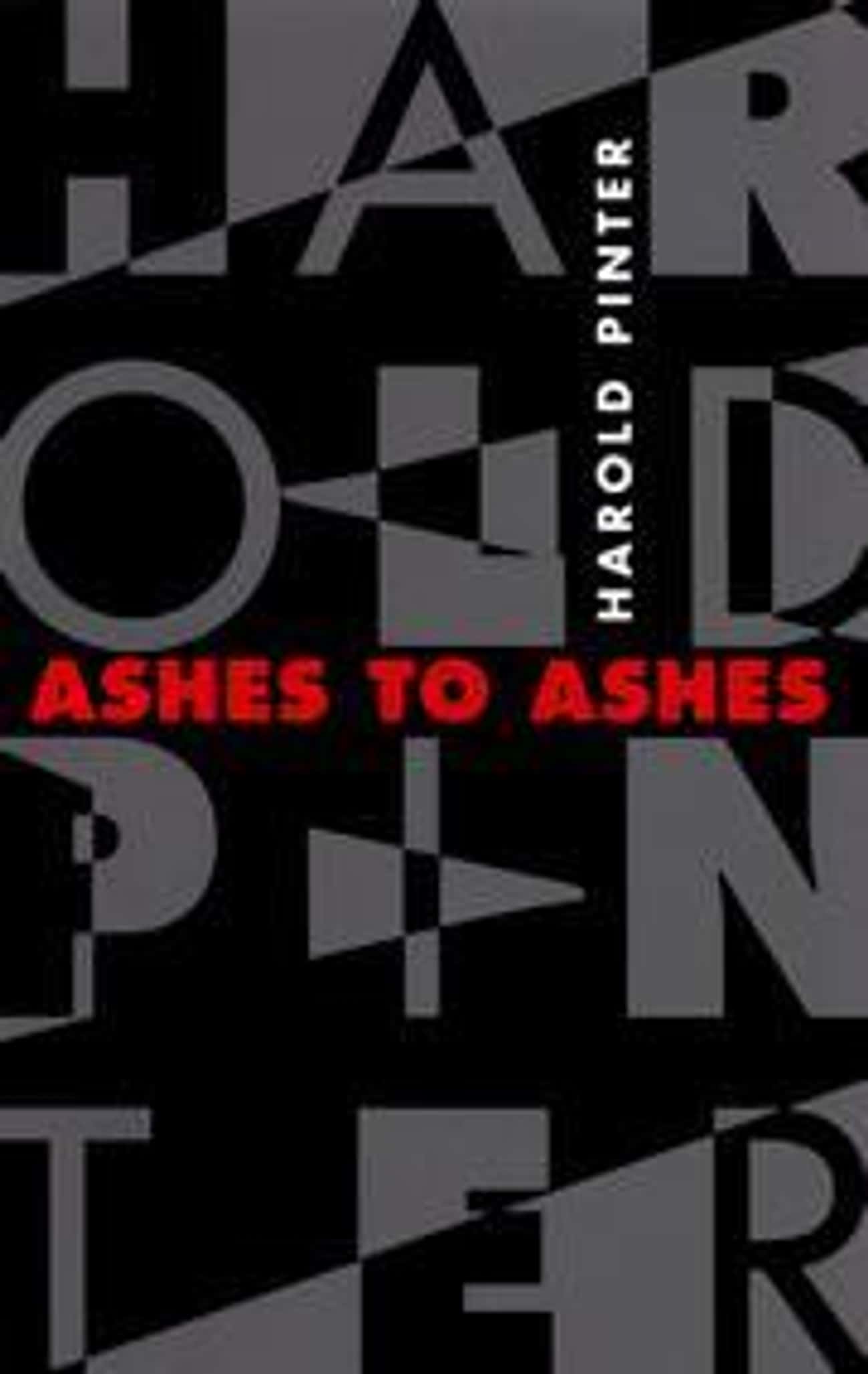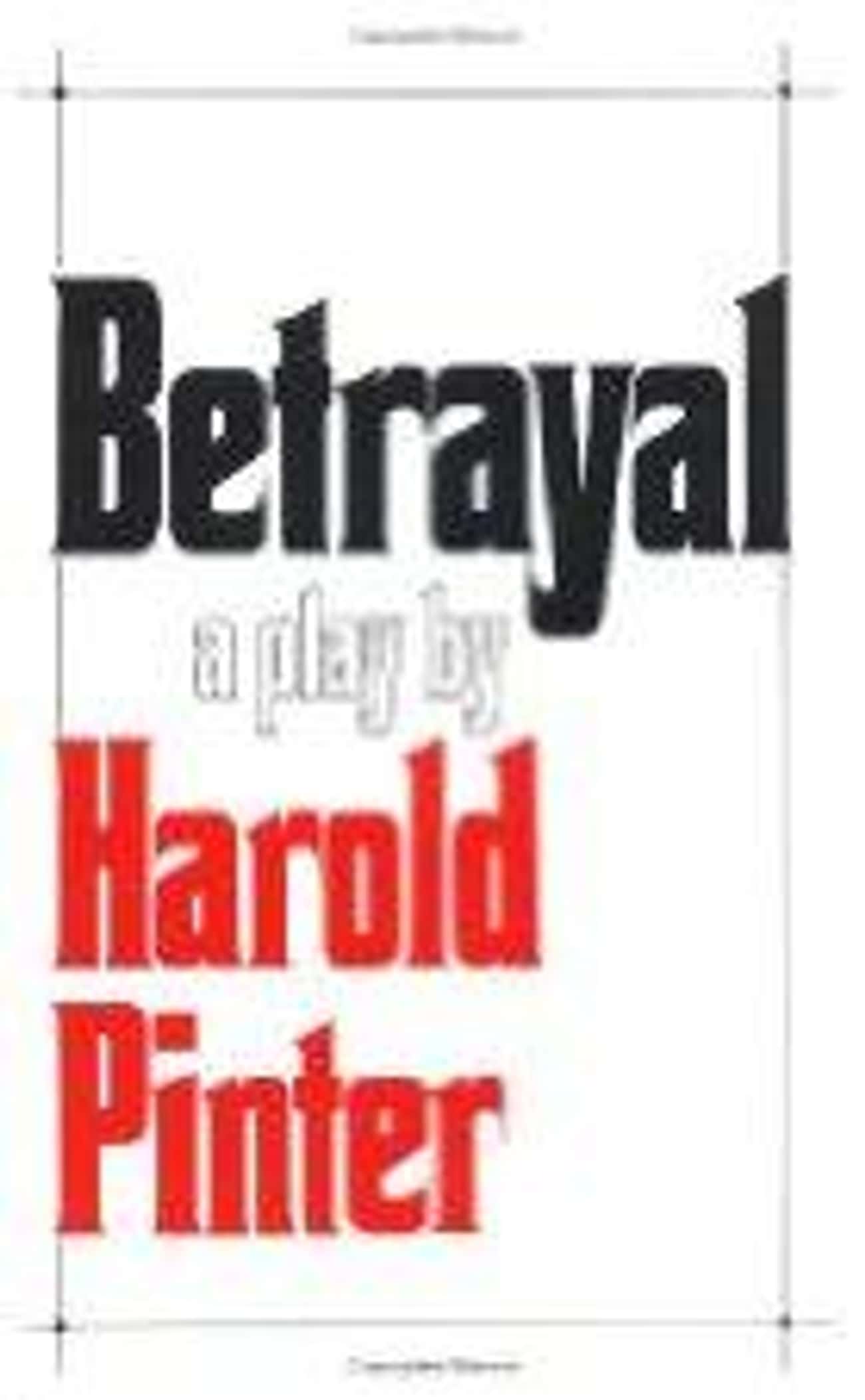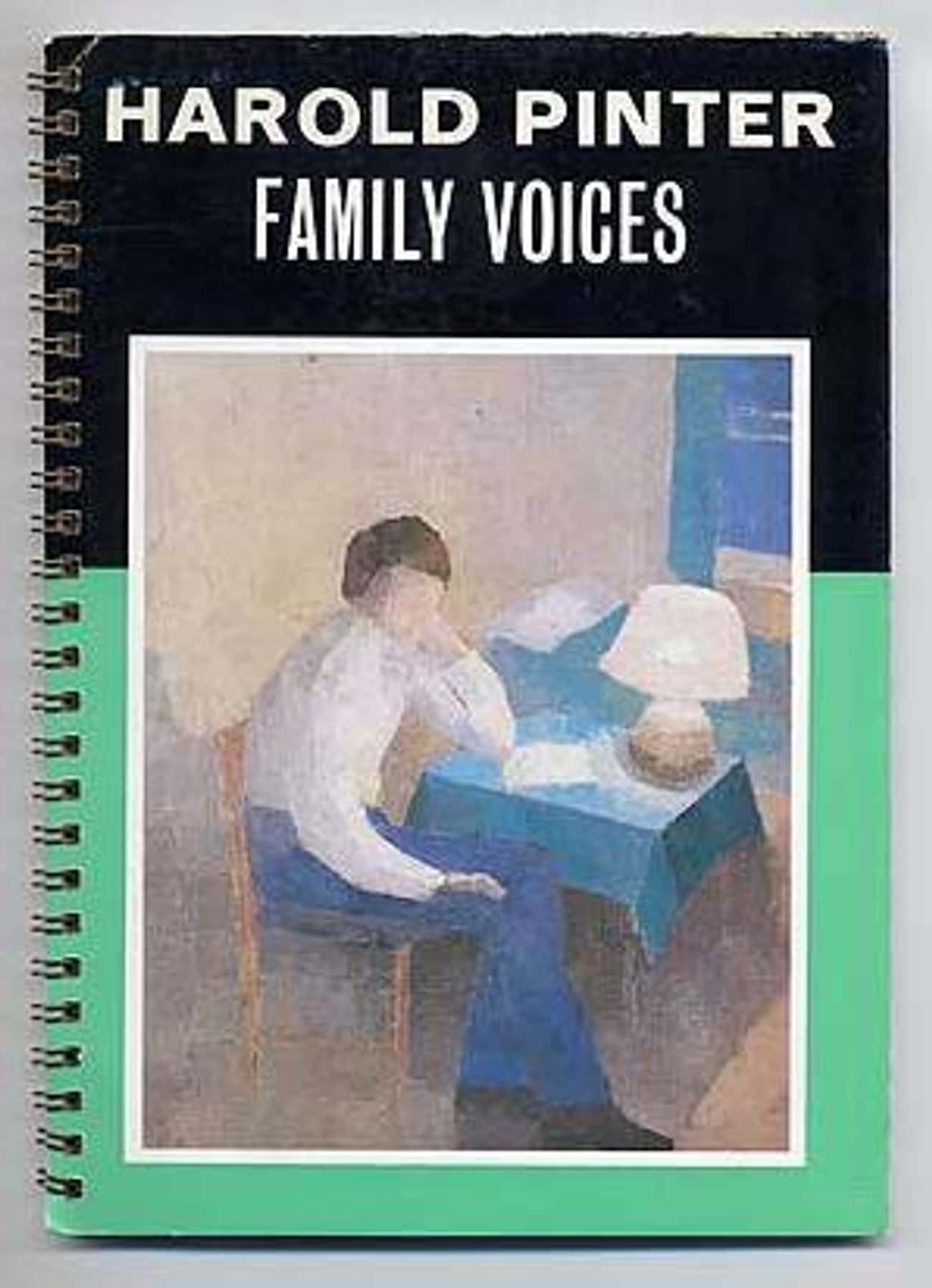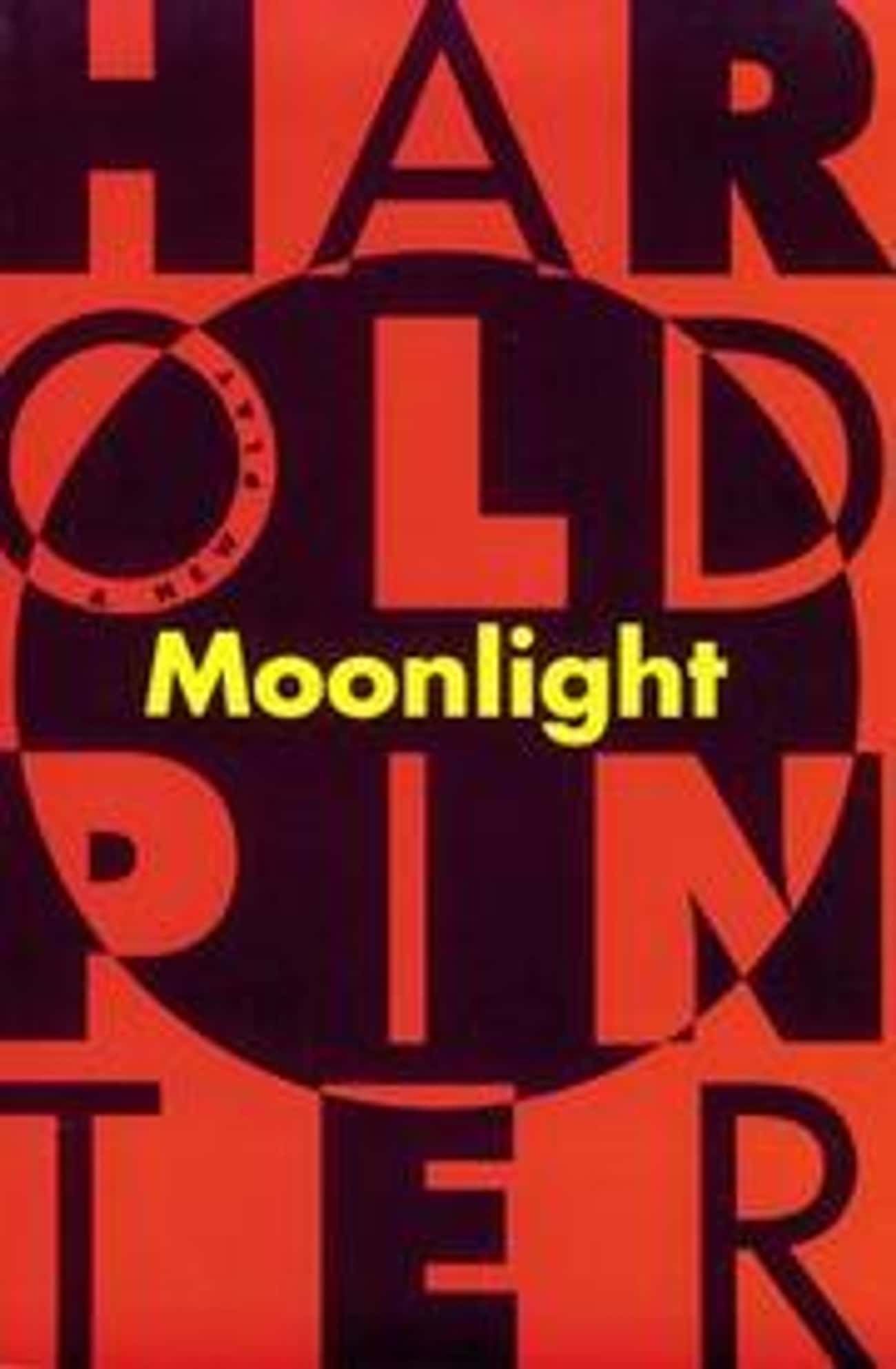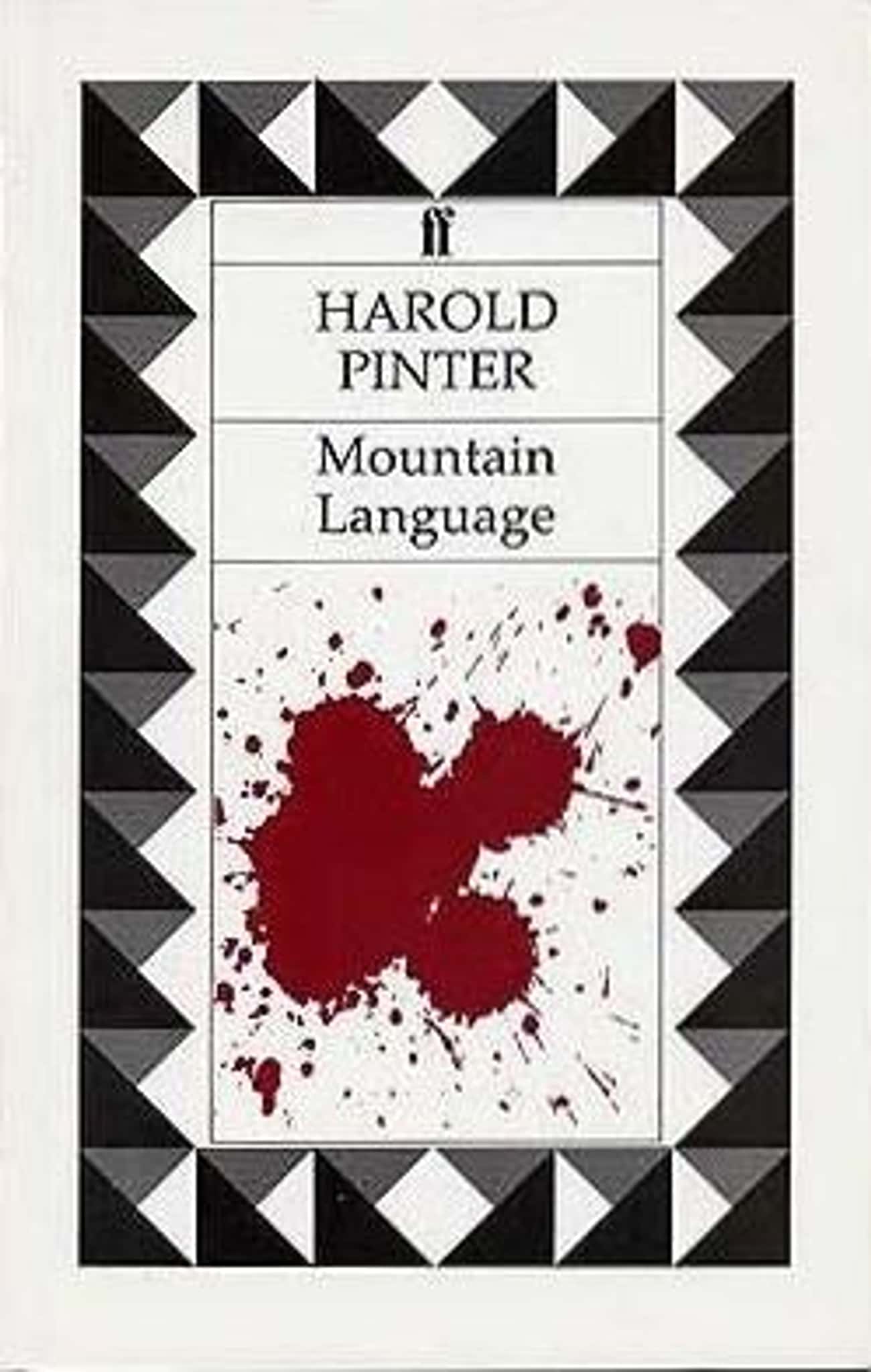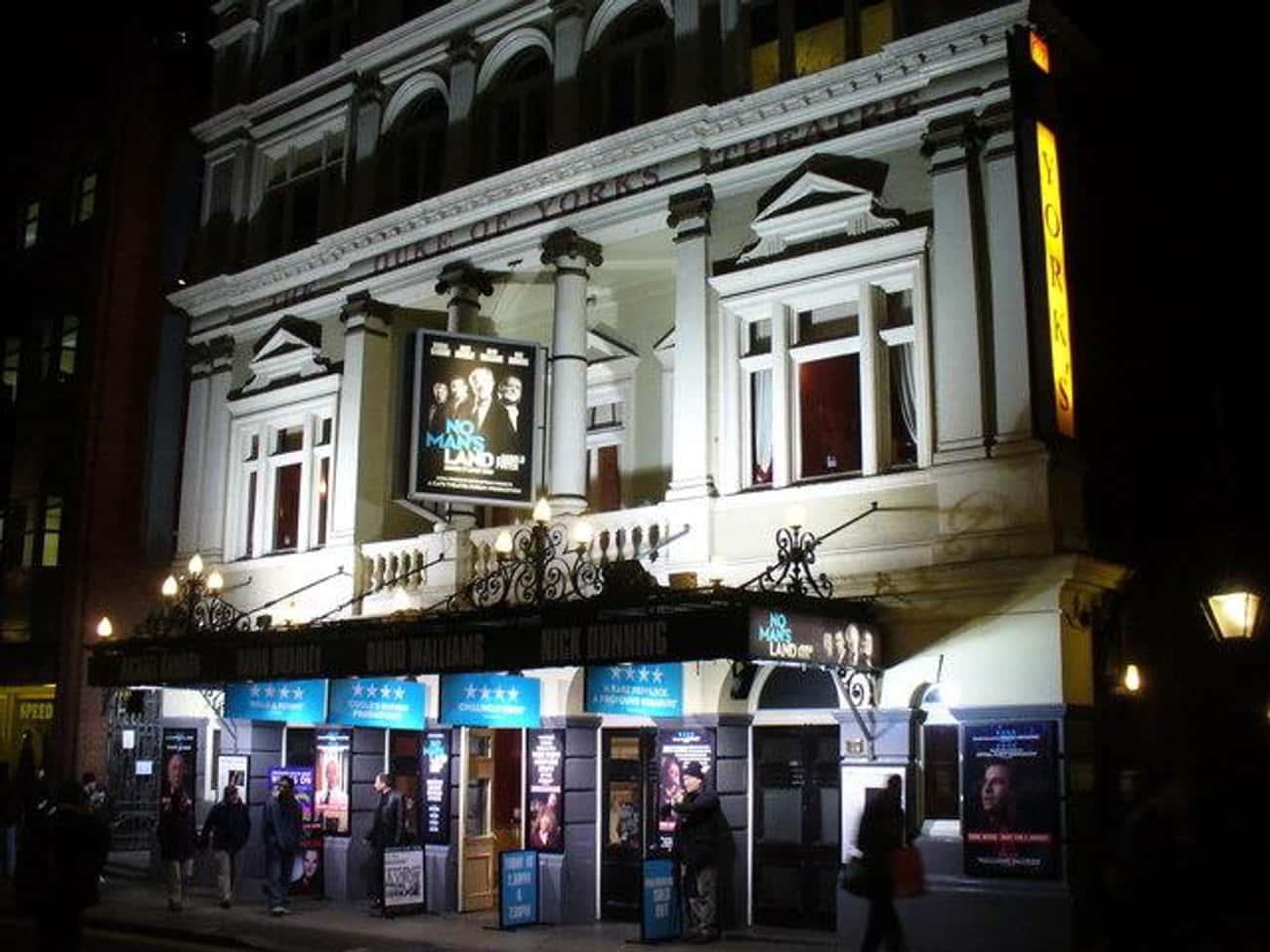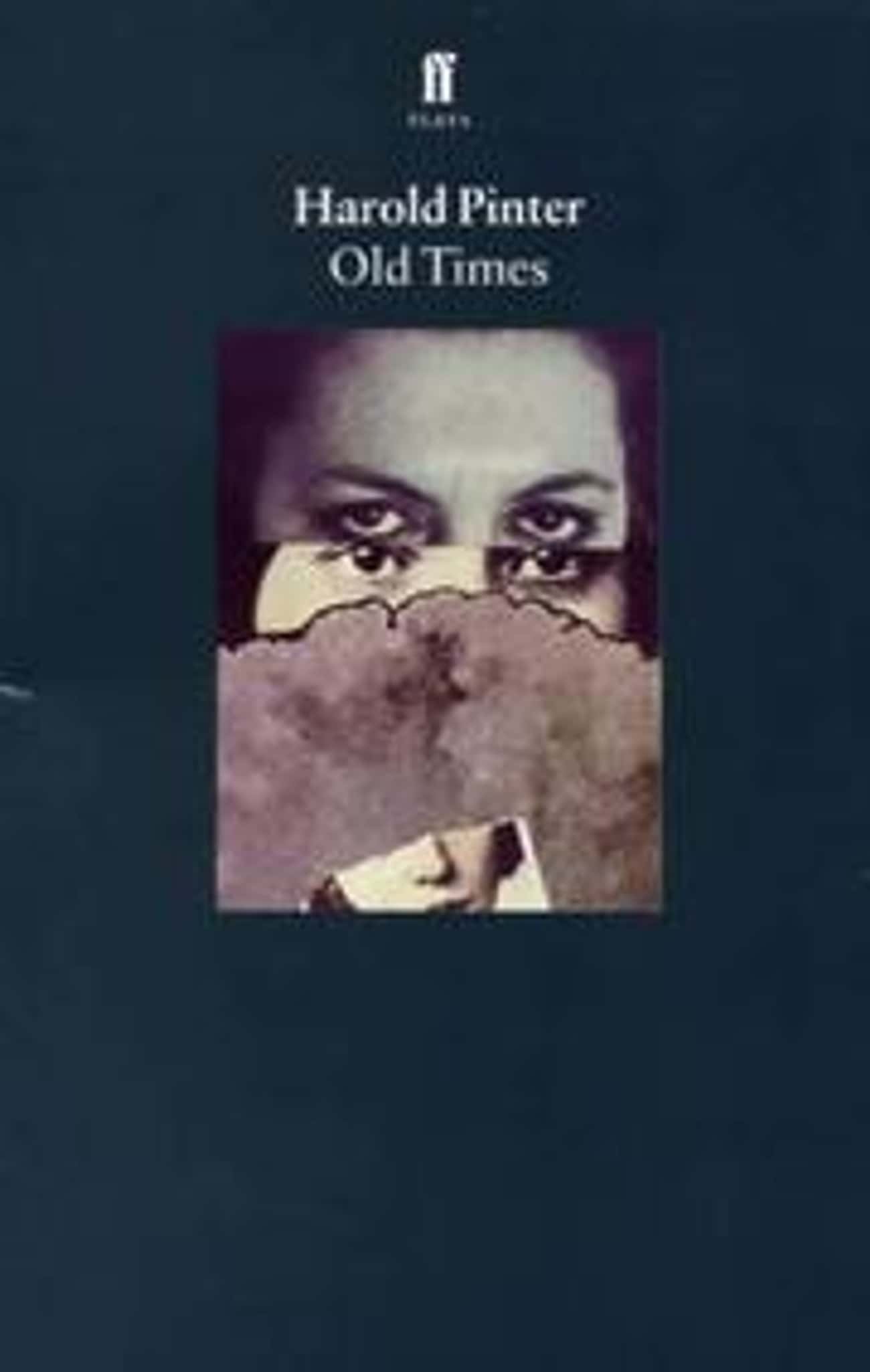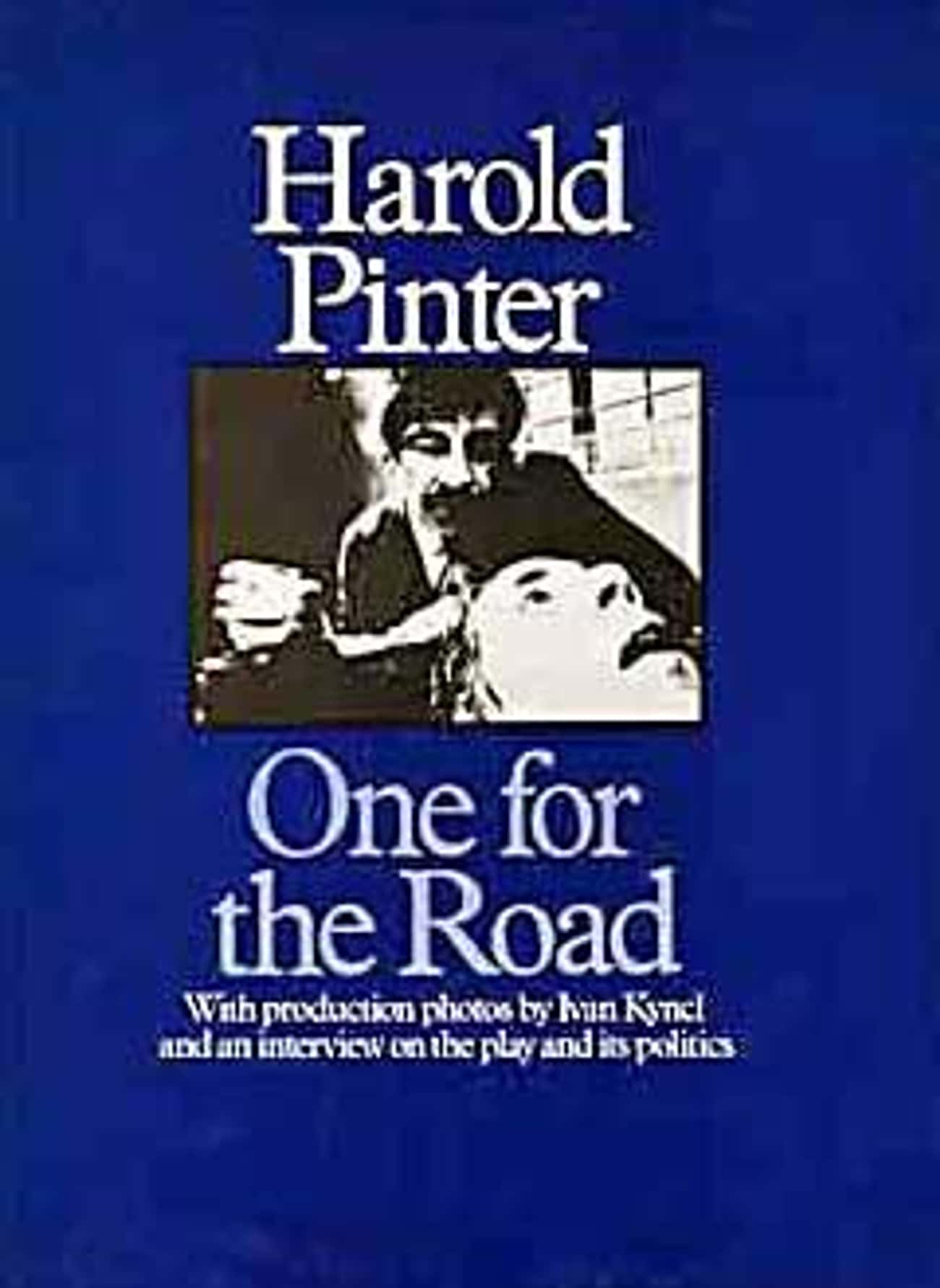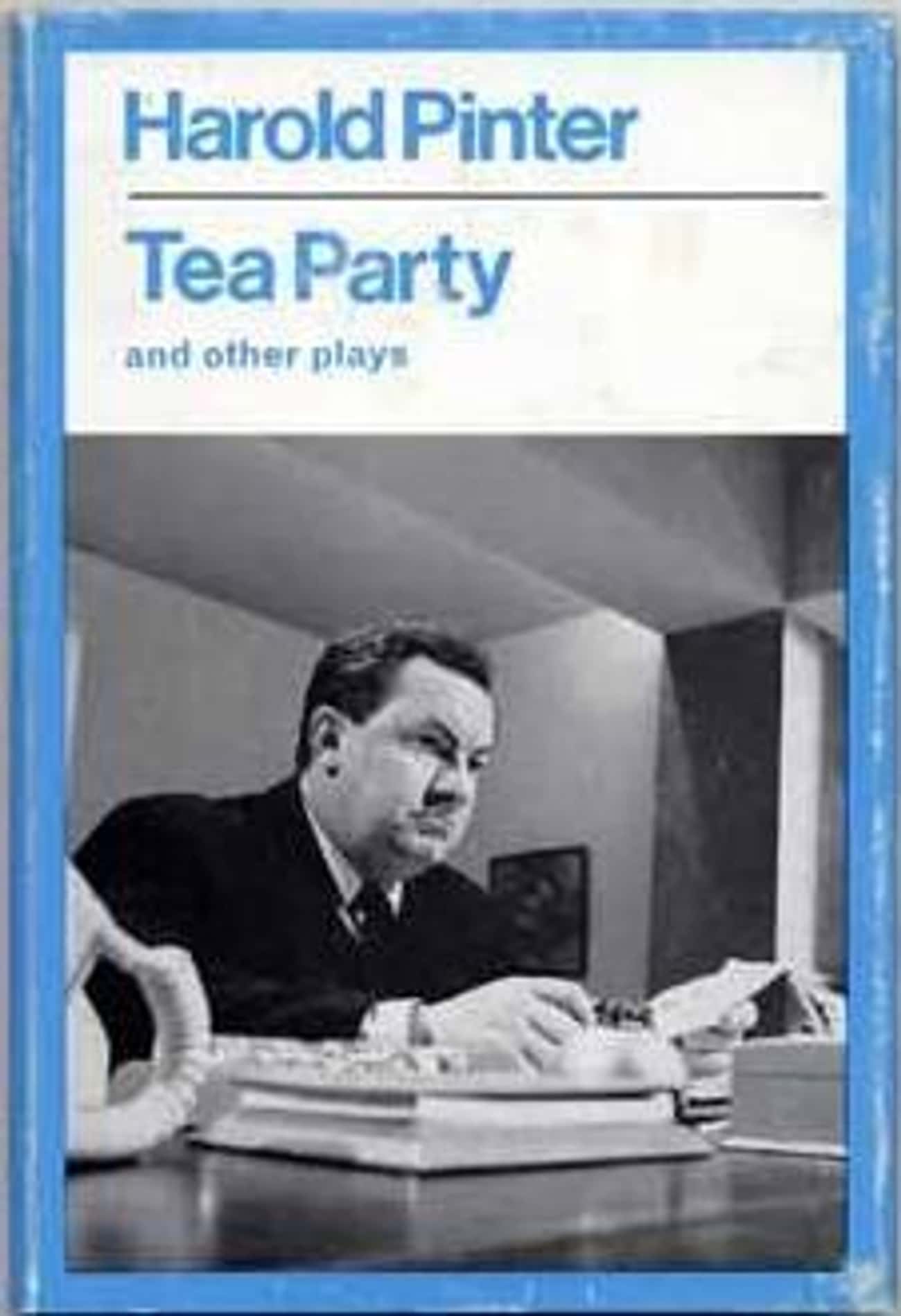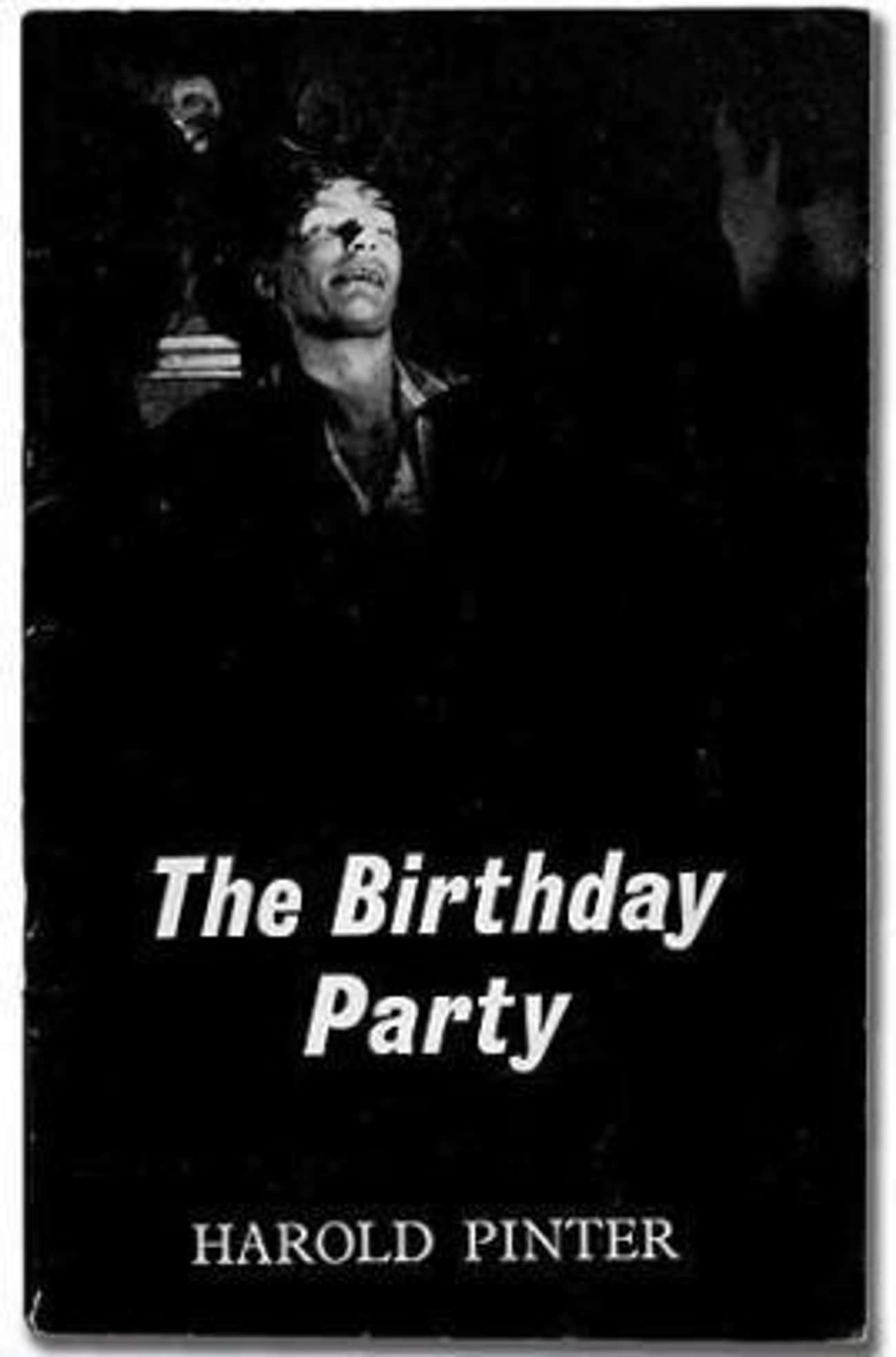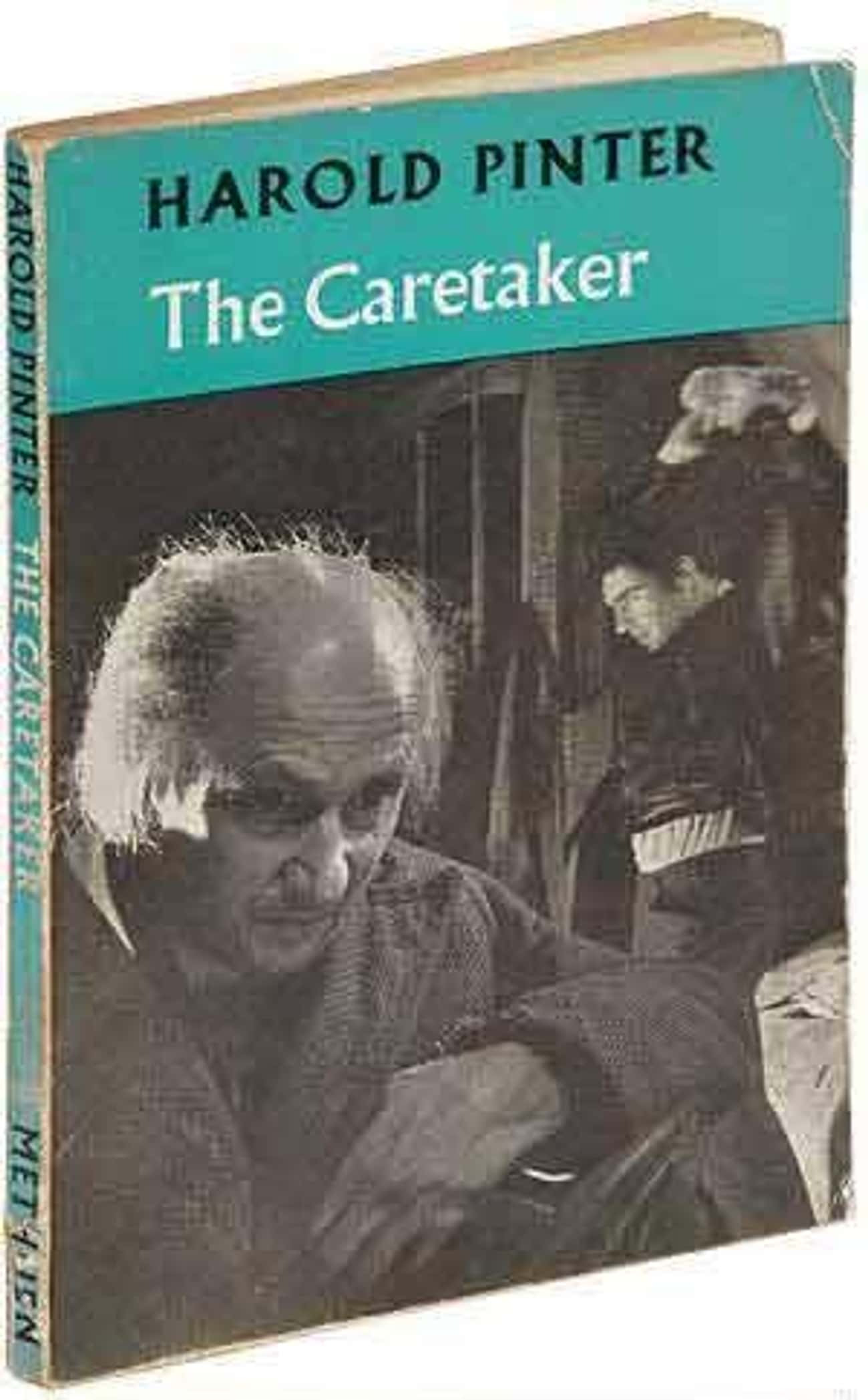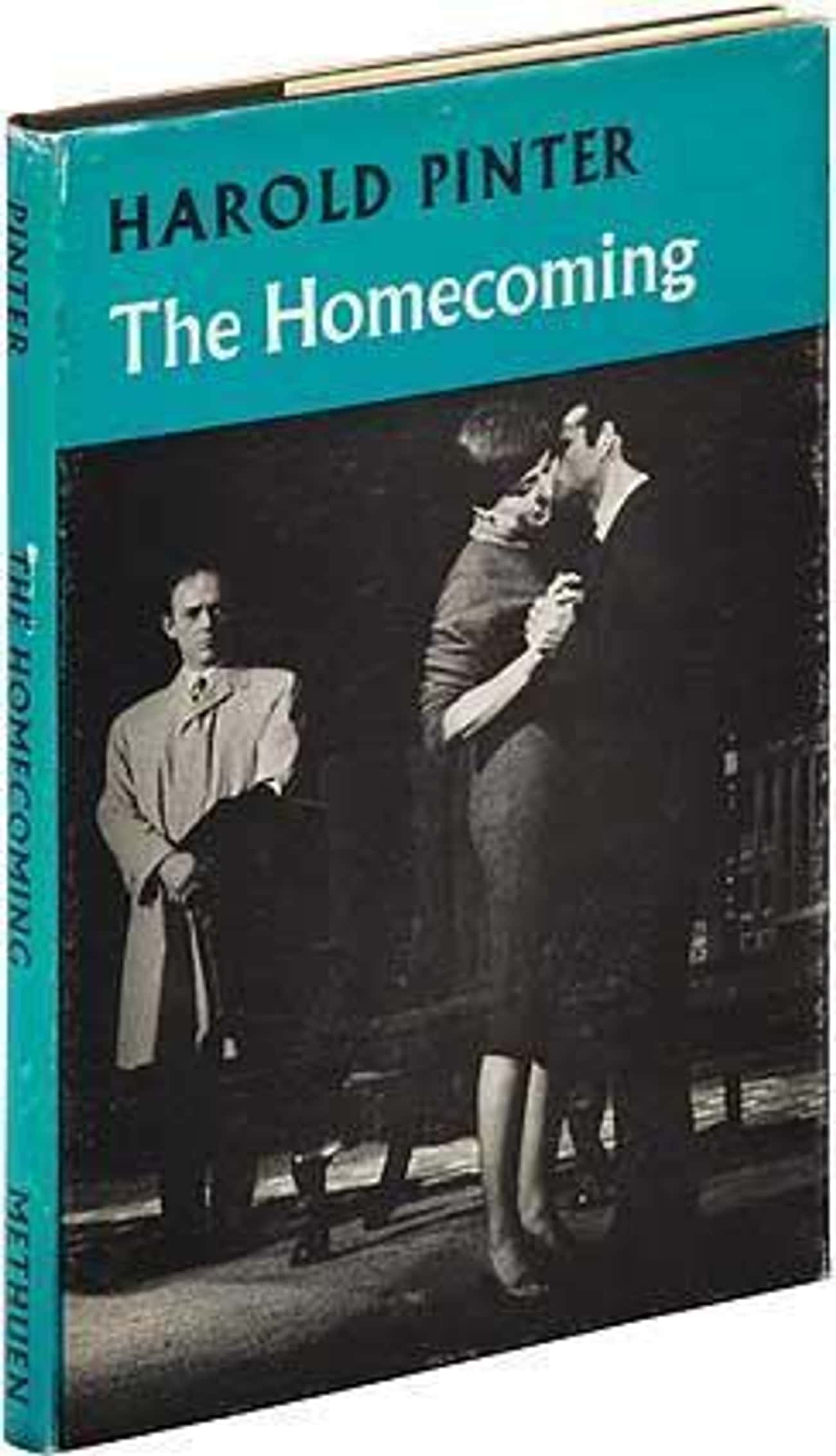Harold Pinter Plays List
List of Harold Pinter plays with descriptions, including any musicals by Harold Pinter, playwright. This Harold Pinter plays list includes promotional photos when available, as well as information about co-writers and Harold Pinter characters. This list of plays by Harold Pinter is listed alphabetically and includes art of the play's posters when available. List features items like Moonlight, No Man's Land. What plays did Harold Pinter write? All these, one-acts, musicals, or full-length plays are by Harold Pinter and can help you decide, "What are the best Harold Pinter plays?" {#nodes}
A Night Out
A Night Out is a play written by Harold Pinter in 1959. Albert Stokes, a loner in his late twenties lives with his emotionally suffocating mother and works in an office. After being falsely accused of groping a female at an office party, he wanders the streets until he meets a girl, who invites him to her flat, where he responds to her overtures by angrily demeaning her. Then he returns home to his mother.The play had its first performance on the BBC Third Programme on 1 March 1960, with Pinter's acting-school classmate and friend Barry Foster as Albert Stokes, Harold Pinter as Seeley, and Vivien Merchant, Pinter's first wife, as the Girl. (Full production details and "Radio Review" accessible at www.haroldpinter.org.) Its performance on television a month later, on 24 April 1960, was Pinter's first big success as a playwright in that medium. As presented on ABC Television's Armchair Theatre, it was viewed by 6.4 million households, at that time a record for a single television drama.Some other ABC production details (full cast and credits accessible at BFI Screenonline): Director Philip Saville Producer Sydney Newman Designer Assheton GortonCastTom Bell – Albert Stokes Madge Ryan – Mrs Stokes Harold Pinter (as David Baron) – Seeley Vivien Merchant – Girl Arthur Lowe – Mr King Stanley Meadows – GidneyApplicant
Applicant is a dramatic sketch written by Harold Pinter. Originally written in 1959 and first published by Eyre Methuen in 1961, it was first broadcast on BBC Radio on the Third Programme "between February and March 1964," along with Pinter's other revue sketches, That's Your Trouble, That's All, Interview, and Dialogue for Three. A revised and much-expanded version of Applicant is incorporated in the last scene of Act One of Pinter's play The Hothouse, wherein the character still called Lamb is "tested" in "a soundproof room" by Miss Cutts, the successor of Miss Piffs, and her colleague Gibbs. According to Pinter's official authorised biographer Michael Billington, the sketch was inspired by and reproduced details of "his own experience [as 'a guinea pig']" at the Maudsley Hospital in London" in 1954, in which he took part to earn "ten bob or something" and about which he told Billington: "The Hothouse was kicked off by that experience. I was well aware of being used for an experiment and feeling quite powerless".- Photo: Metaweb (FB) / Fair use
Ashes to Ashes
Ashes to Ashes is a 1996 play by English playwright Harold Pinter. It was first performed, in Dutch, by Toneelgroep Amsterdam, the Netherlands' largest repertory company, in Amsterdam, as part of its 1996–1997 season, and directed by Titus Muizelaar, who reprised his production, in Dutch with English surtitles, as part of a double bill with Buff, by Gerardjan Rijnders, at the Riverside Studios, Hammersmith, from 23 through 27 June 1998. Its English première by the Royal Court Theatre opened after the Dutch première, at the Ambassadors Theatre, in London, on 12 September 1996. - Photo: Metaweb (FB)
Betrayal
Betrayal is a play written by Harold Pinter in 1978. Critically regarded as one of the English playwright's major dramatic works, it features his characteristically economical dialogue, characters' hidden emotions and veiled motivations, and their self-absorbed competitive one-upmanship, face-saving, dishonesty, and (self-)deceptions.Inspired by Pinter's clandestine extramarital affair with BBC Television presenter Joan Bakewell, which spanned seven years, from 1962 to 1969, the plot of Betrayal integrates different permutations of betrayal relating to a seven-year affair involving a married couple, Emma and Robert, and Robert's "close friend" Jerry, who is also married, to a woman named Judith. For five years Jerry and Emma carry on their affair without Robert's knowledge, both cuckolding Robert and betraying Judith, until Emma, without telling Jerry she has done so, admits her infidelity to Robert (in effect, betraying Jerry), although she continues their affair. In 1977, four years after exposing the affair (in 1973) and two years after their subsequent break up (in 1975), Emma meets Jerry to tell him that her marriage to Robert is over. She then lies to Jerry in telling him that, "last night", she had to reveal the truth to Robert and that he now knows of the affair. The truth however, is that Robert has known about the affair for the past four years. Pinter's particular usage of reverse chronology in structuring the plot is innovative: the first scene takes place after the affair has ended, in 1977; the final scene ends when the affair begins, in 1968; and, in between 1977 and 1968, scenes in two pivotal years (1977 and 1973) move forward chronologically. As Roger Ebert observes, in his review of the 1983 film, based on Pinter's own screenplay, "The 'Betrayal' structure strips away all artifice. In this view, the play shows, heartlessly, that the very capacity for love itself is sometimes based on betraying not only other loved ones, but even ourselves." Still, drawing on the frequently commented influence of Proust's 'In Search of Lost Time' and Pinter's work on the 1977 'The Proust Screenplay' on the 1978 'Betrayal,' more emotionally complex interpretations are possible based on a stress on dual motions, one forward in calendar time toward disillusion and one backward toward the redemptive recovery of time, in each work. Celebration
Celebration is a play by British playwright Harold Pinter. It was first presented as a double-bill, with Pinter's first play The Room on Thursday 16 March 2000 at the Almeida Theatre in London.- Photo: Metaweb (FB) / Fair use
Family Voices
Family Voices is a radio play by Harold Pinter written in 1980 and first broadcast on BBC Radio 3 on 22 January 1981. Landscape
Landscape is a one-act play by Harold Pinter that was first broadcast on radio in 1968 and first performed on stage in 1969. The play shows the difficulties of communication between two people in a marriage. This is illustrated through the two characters who appear to be talking to one another though neither seems to hear the other. The dialogue resembles two independent monologues. The play is often studied, read, and performed alongside Silence, another one-act play published soon after Landscape. Both plays mark a change in Pinter's style, with echoes of the work of Samuel Beckett. In both plays nothing happens, the action of the plays is brought to a halt putting an added emphasis on the role of the dialogues and monologues that take place. As one critic put it "nothing happens but much is explored".- Photo: Metaweb (FB)Moonlight is a play written by Harold Pinter, which premiered at the Almeida Theatre, in London, in September 1993.
- Photo: Metaweb (FB) / Fair use
Mountain Language
Mountain Language is a one-act play written by Harold Pinter, first published in The Times Literary Supplement on 7–13 October 1988. It was first performed at the Royal National Theatre in London on 20 October 1988 with Michael Gambon and Miranda Richardson. Subsequently, it was published by Faber and Faber and Grove Press. Mountain Language lasts about 25 minutes in production. Night
Night is a dramatic sketch by the English playwright Harold Pinter, presented as one of eight short dramatic works about marriage in the program Mixed Doubles: An Entertainment on Marriage at the Comedy Theatre, London, on 9 April 1969; directed by Alexander Doré, this production included Nigel Stock as the Man and Pinter's first wife, Vivien Merchant, as the Woman (54). It replaced another sketch performed previously in the program We Who Are About To... at the Hampstead Theatre Club on 6 February 1969; each of the original eight sketches about marriage also featured two characters.This dramatic sketch is a duologue between a married couple "in their forties" (54). As they "sit with coffee" (54), they reminisce about when they first met and fell in love during their youth. The tone of the sketch is both gently comic and wistful, as Pinter exposes some present emotional disjunction between the characters through their dialogue about their past, which they remember differently. They have at least one child, as the wife thinks she "heard a child crying, […] a child, waking up" in their house, whereas the husband responds, "There was no sound. […] The house is silent" (57). Night was among the sketches included in Sketches II, the second of a two-part programme, produced on 8 (I) and 11 February 2002 (II), at the Lyttelton Theatre, Royal National Theatre, in London ("Sketches", haroldpinter.org). It was also produced again as part of Pinter's People, at the Haymarket Theatre, in London, running for four weeks beginning on 30 January 2007.It was first published with Pinter's two one-act plays Landscape (1968) and Silence (1969), by Methuen, in London, in 1969, and by Grove Press, in New York, in 1970.- Photo: Metaweb (FB) / CC-BY-SA-2.0
No Man's Land
No Man's Land is an absurdist play by Harold Pinter written in 1974 and first produced and published in 1975. Its original production was at the Old Vic Theatre in London by the National Theatre on 23 April 1975, and it later transferred to Wyndhams Theatre, July 1975 – January 1976, the Lyttelton Theatre April–May 1976, and New York October–December, returning to the Lyttelton, January–February 1977. - Photo: Metaweb (FB)Old Times is a play by the Nobel Laureate Harold Pinter. It was first performed by the Royal Shakespeare Company at the Aldwych Theatre in London on June 1, 1971. It starred Colin Blakely, Dorothy Tutin, and Vivien Merchant, and was directed by Peter Hall. The play was dedicated to Hall to celebrate his 40th birthday. Peter Hall also directed the Broadway première, which opened at the Billy Rose Theater in New York on November 16, 1971, starring Robert Shaw, Rosemary Harris and Mary Ure; and a year later, the German language premiére of the play at the Burgtheater in Vienna, with Maximilian Schell, Erika Pluhar and Anna-Marie Duringer. In February 2007 Hall returned again to the play directing a new production with his Theatre Royal, Bath company.
- Photo: Metaweb (FB)
One for the Road
One for the Road is an overtly-political one-act play by Harold Pinter, which premiered at Lyric Studio, Hammersmith, in London, on 13 March 1984, and was first published by Methuen in 1984. - Photo: Metaweb (FB) / Fair use
Tea Party
Tea Party is a play written by Harold Pinter, which Pinter adapted from his own 1963 short story of the same title. As a screenplay, it was commissioned by the European Broadcasting Union, directed by Charles Jarrott, and first transmitted on BBC Television in the programme The Largest Theatre in the World on 25 March 1965. It was first produced on stage in October 1968 as part of a double bill with Pinter's play The Basement. - Photo: Metaweb (FB)The Birthday Party (1957) is the second full-length play by Harold Pinter, first published in London by Encore Publishing in 1959. It is one of his best-known and most frequently performed plays.In the setting of a rundown seaside boarding house, a little birthday party is turned into a nightmare when two sinister strangers arrive unexpectedly. The play has been classified as a comedy of menace, characterised by Pinteresque elements such as ambiguous identity, confusions of time and place, and dark political symbolism. Pinter began writing The Birthday Party in the summer of 1957 while touring in Doctor in the House. He later said: "I remember writing the big interrogation scene in a dressing room in Leicester."
- Photo: Metaweb (FB)
The Caretaker
The Caretaker is a play in three acts by Harold Pinter. Although it was the sixth of his major works for stage and television, this psychological study of the confluence of power, allegiance, innocence, and corruption among two brothers and a tramp, became Pinter's first significant commercial success. It premiered at the Arts Theatre Club in London's West End on 27 April 1960 and transferred to the Duchess Theatre the following month, where it ran for 444 performances before departing London for Broadway. In 1964, a film version of the play based on Pinter's unpublished screenplay was directed by Clive Donner. The movie starred Alan Bates as Mick and Donald Pleasence as Davies in their original stage roles, while Robert Shaw replaced Peter Woodthorpe as Aston. First published by both Encore Publishing and Eyre Methuen in 1960, The Caretaker remains one of Pinter's most celebrated and oft-performed plays. The Collection
The Collection is a 1961 play by Harold Pinter featuring two couples, James and Stella and Harry and Bill. It is a comedy laced with typically "Pinteresque" ambiguity and "implications of threat and strong feeling produced through colloquial language, apparent triviality, and long pauses" (Oxford English Dictionary).The Dumb Waiter
The Dumb Waiter is a one-act play by Harold Pinter written in 1957. "Small but perfectly formed, The Dumb Waiter might be considered the best of Harold Pinter's early plays, more consistent than The Birthday Party and sharper than The Caretaker. It combines the classic characteristics of early Pinter – a paucity of information and an atmosphere of menace, working-class small-talk in a claustrophobic setting – with an oblique but palpable political edge and, in so doing, can be seen as containing the germ of Pinter's entire dramatic oeuvre". "The Dumb Waiter is Pinter distilled – the very essence of a writer who tapped into our desire to seek out meaning, confront injustice and assert our individuality."- Photo: Metaweb (FB)
The Homecoming
The Homecoming is a two-act play written by Harold Pinter. The Hothouse
The Hothouse is a full-length tragicomedy written by Harold Pinter in the winter of 1958 between The Birthday Party and The Caretaker. After writing The Hothouse in the winter of 1958 and following the initial commercial failure of The Birthday Party, Pinter put the play aside; in 1979 he re-read it and directed its first production, at Hampstead Theatre, where it opened on 24 April 1980, transferring to the Ambassadors Theatre on 25 June 1980, and it was first published, also in 1980, by Eyre Methuen. The play received its American premiere at the Trinity Repertory Company in 1982. Pinter himself played Roote in a subsequent production staged at the Minerva Theatre, in Chichester, in 1995, later transferring to the Comedy Theatre, in London.The Lover
The Lover is a 1962 one-act play by Harold Pinter. The play contrasts bourgeois domesticity with sexual yearning. As with the drama of Anton Chekhov, some of Pinter's plays support "serious" and "comic" interpretations; The Lover has been staged successfully both as an ironic comedy on the one hand and as a nervy drama on the other. As is often the case with Pinter, the play probably contains both.The Room
The Room is Harold Pinter's first play, written and first produced in 1957. Considered by critics the earliest example of Pinter's "comedy of menace", this play has strong similarities to Pinter's second play, The Birthday Party, including features considered hallmarks of Pinter's early work and of the so-called Pinteresque: dialogue that is comically familiar and yet disturbingly unfamiliar, simultaneously or alternatingly both mundane and frightening; subtle yet contradictory and ambiguous characterizations; a comic yet menacing mood characteristic of mid-twentieth-century English tragicomedy; a plot featuring reversals and surprises that can be both funny and emotionally moving; and an unconventional ending that leaves at least some questions unresolved.Victoria Station
Victoria Station is a short play for two actors by the English playwright Harold Pinter.


